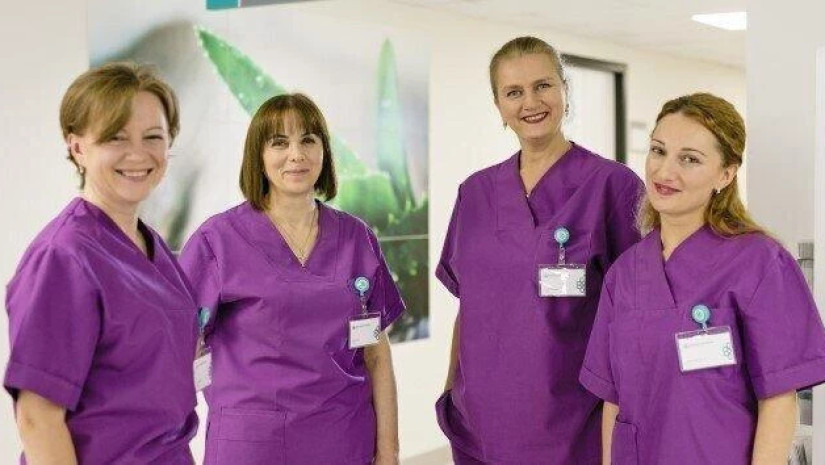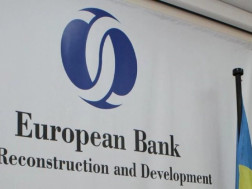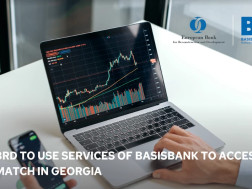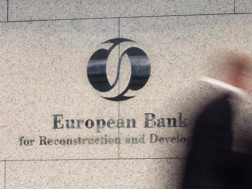EBRD and GEF support GHG, the country’s largest healthcare provider
It is a well-known fact that climate change and human health are intrinsically linked; a clean environment is essential for our well-being, as conditions such as extreme weather and exposure to air pollution have been proved to cause serious health problems.
However, climate change also raises questions about the resilience of our health infrastructure.
The World Health Organisation (WHO) estimates that between 2030 and 2050 climate change will cause an extra 250,000 deaths a year from malnutrition, malaria, diarrhoea and heat stress alone.
But are health systems ready to cope with the expected increase in demand? And what about the health sector’s impact on the environment?
According to research in 2019 by Health Care Without Harm (HCWH) and consultancy firm Arup, the health sector’s carbon footprint accounts for 4.4 per cent of the world’s net C0₂ emissions. If healthcare were a country, it would be the fifth largest emitter on the planet – hospitals, for example, use more resources and produce more waste than most other commercial buildings of a similar size.
That is why more and more healthcare and hospital administrators are starting to incorporate the green agenda into hospital design.
How GHG greened its infrastructure and equipment
Georgia Healthcare Group (GHG) is pushing ahead with its green transition, with support from the European Bank for Reconstruction and Development (EBRD) and the Global Environment Facility (GEF) through the Bank’s Finance and Technology Transfer Centre for Climate Change (FINTECC).
“I think businesses should start thinking about the subject and set it as a priority,” says Ketevan Kalandarishvili, Head of Investor Relations and Funding at GHG. “Each business should set their environmental agenda and integrate it into their strategic direction.”
GHG is the largest healthcare provider in Georgia, offering a comprehensive range of inpatient and outpatient services through a network of 16 hospitals and 35 clinics, with a total of around 2,500 beds. GHG also operates the largest pharmacy and distribution business, with 358 pharmacies in Georgia and 8 in Armenia, as well as the largest diagnostic centre in the Caucasus region.
GHG has adopted the best available green technologies and equipment that go beyond standard practice in Georgia. These include advanced thermal insulation, high efficiency chillers and boilers, LED lighting and integrated renewable energy sources. The result is a reduction in energy consumption of more than 10 per cent across its healthcare facilities.
This year, with the EBRD’s support, GHG conducted an energy audit of its facilities. It identified several cost-effective ways to improve things further that will lead to energy and water savings, new energy management systems and a smaller environmental footprint of existing buildings.
“The company strives every day to deliver on its mission to improve the quality of healthcare in the country across an increasing spectrum of services and products, be an environmentally responsible business and support the market’s continuing development,” says Mrs Kalandarishvili.
EBRD and GHG are long-standing partners
These green projects are not the only ones the EBRD has helped with. Initially the Bank provided GHG with a US$ 10 million financing to support the renovation and refurbishment of two large hospitals in the capital Tbilisi, the expansion of its ambulatory clinics network and the development of new healthcare services in the country.
The Bank also helped the company to build the largest diagnostics laboratory in the entire Caucasus region – the Mega Laboratory. The multi-disciplinary laboratory, equipped with the latest infrastructure and state-of-the-art technology, allowed GHG to build a molecular lab and offer complex tests for oncology, some of which have never been available in Georgia before. The lab recently received a Joint Commission International (JCI) accreditation for its high standards.
The partnership between GHG and the EBRD was further cemented during the Covid-19 pandemic, when the Bank provided it with US$ 25 million for working capital and operational expenditure requirements.
Last month, EBRD President Odile Renaud-Basso visited Georgia and signed a new project with GHG’s subsidiary, JSC Evex Hospitals (Evex), to improve access to quality healthcare in Georgia.
All of these measures and its cooperation with the EBRD and GEF are helping GHG to realise its ambition to elevate healthcare standards in Georgia. “Over the last decade, GHG has spent nearly US$300 million on transforming healthcare in Georgia, upgrading and building hospitals and clinics to address the medical skills and service gaps,” explains Mrs Kalandarishvili. “By helping the government of Georgia to achieve a key element of the Sustainable Development Goals (SDG) we are ensuring healthy lives and promoting well-being for all, whatever age.”
















